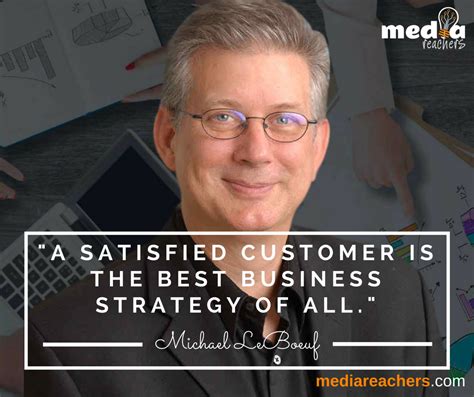A Quote by Andy Jassy
Customers will always be nervous about lock-in, and I think the experience they had particularly with a company like Oracle, where it's a really hard thing to get out of, and they're so hostile to their customers, that I think it's a concern for every enterprise.
Related Quotes
If you ask who are the customers of education, the customers of education are the society at large, the employers who hire people, things like that. But ultimately I think the customers are the parents. Not even the students but the parents. The problem that we have in this country is that the customers went away. The customers stopped paying attention to their schools, for the most part.
Often people say they can't base their strategies on customers because customers make unreasonable requests and because customers vary too much. Such opinions reveal serious misconceptions. The truly outside-in company definitely does not try to serve all the needs of its customers. Instead, its managers are clear about what their organization can and should do for customers, and whatever they do they do well. They focus.
Many companies operate from more of a command-and-control environment - they decide what's going to happen at headquarters and have the organization execute. That doesn't work here because it's the community of users who really have control.
So we enable, not direct. We think of our customers as people, not wallets. And that has implications for how we run the company. We partner with our customers and let them take the company where they think it's best utilized.
I think a much better use of time and resources is to really focus on your existing users or customers and figure out what changes can you make in the Web site, the service, the product, whatever, to get them to come back more often to generate that repeat business and once you kind of figure out that formula, then when you get new customers the whole thing just kind of grows exponentially.
Marketing is your battle plan for the sales team - it's about defining the landscape. Marketing is doing cohort analysis and understanding exactly what possible customers are out there. It's understanding not only which customers will respond to what messages, but also how customers will become clients if you include certain product features.


































